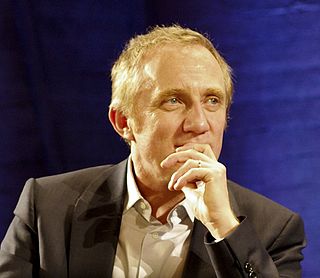A Quote by Ansel Adams
At one with the power of the American landscape, and renowned for the patient skill and timeless beauty of his work, photographer Ansel Adams has been visionary in his efforts to preserve this country's wild and scenic areas, both in film and on Earth. Drawn to the beauty of nature's monuments, he is regarded by environmentalists as a monument himself, and by photographers as a national institution. It is through his foresight and fortitude that so much of America has been saved for future Americans.
Quote Topics
America
American
American Landscape
Areas
Beauty
Been
Both
Country
Drawn
Earth
Efforts
Environmentalists
Film
Foresight
Fortitude
Future
Himself
His
Institution
Landscape
Monument
Monuments
Much
National
Nature
Patient
Photographer
Photographers
Power
Preserve
Regarded
Renowned
Saved
Scenic
Skill
Through
Timeless
Visionary
Wild
Work
Related Quotes
My teacher introduced me to this photographer Eugène Atget. He was a French photographer in the late 1800s up until 1927 in Paris. He didn't consider himself an artist, but he was probably one of the artists of the 20th century. This guy documented all of Paris during those years. It's unbelievable. The books are phenomenal. The Museum of Modern Art has all his stuff now and [American photographer] Berenice Abbott saved his work. Not very much is known about his life, but the work is unreal and it totally spoke to me. He was the only artist for a number of years that I cared about at all.
God has sovereignly pulled back the curtain on His glory. He has disclosed Himself on the platform of both creation and redemption that we might stand awestruck in His presence, beholding the sweet symmetry of His attributes, pondering the unfathomable depths of His greatness, baffled by the wisdom of His deeds and the limitless extent of His goodness. This is His beauty.
A child in his earliest years, when he is only two or a little more, is capable of tremendous achievements simply through his unconscious power of absorption, though he is himself still immobile. After the age of three he is able to acquire a great number of concepts through his own efforts in exploring his surroundings. In this period he lays hold of things through his own activity and assimilates them into his mind.
We must not only protect the country side and save it from destruction, we must restore what has been destroyed and salvage the beauty and charm of our cities ... Once our natural splendor is destroyed, it can never be recaptured. And once man can no longer walk with beauty or wonder at nature, his spirit will wither and his sustenance be wasted.
There was a beauty here bigger than the hurtling beauty of basketball, a beauty refined from country pastures, a game of solitariness, of waiting, waiting for the pitcher to complete his gaze toward first base and throw his lightning, a game whose very taste, of spit and dust and grass and sweat and leather and sun, was America.
By an ambitious chieftain, aiming only to aggrandize himself and establish his power, the subject might have been regarded in a different light; but the designs and actions of Washington centred in nobler objects, the freedom, tranquillity, and happiness of his country, in which he was to participate equally with every other citizen, neither seeking nor expecting any other preeminence than that of having been an instrument in the hand of Providence.
Our forefather Adam... used his freedom to turn toward what was worse and to direct his desire away from what had been permitted to what was forbidden. It was in his power 'to be united to the Lord and become one spirit with God...' (I Cor. 6:15). But Adam was deceived and chose to cut himself off voluntarily from God's happy end for him, preferring by his own free choice to be drawn down to the earth (cf. Gen. 2:17) than to become God by grace.
The fact that labour is external to the worker, i.e., it does not belong to his intrinsic nature; that in his work, therefore he does not affirm himself but denies himself, does not feel content but unhappy, does not develop freely his physical and mental energy but mortifies his body and his mind. The worker therefore only feels himself outside his work, and in his work feels outside himself.
The idea of beauty which man creates for himself imprints itself on his whole attire, crumples or stiffens his dress, rounds off or squares his gesture, and in the long run even ends by subtly penetrating the very features of his face. Man ends by looking like his ideal self. These engravings can be translated either into beauty or ugliness; in one direction, they become caricatures, in the other, antique statues.


































